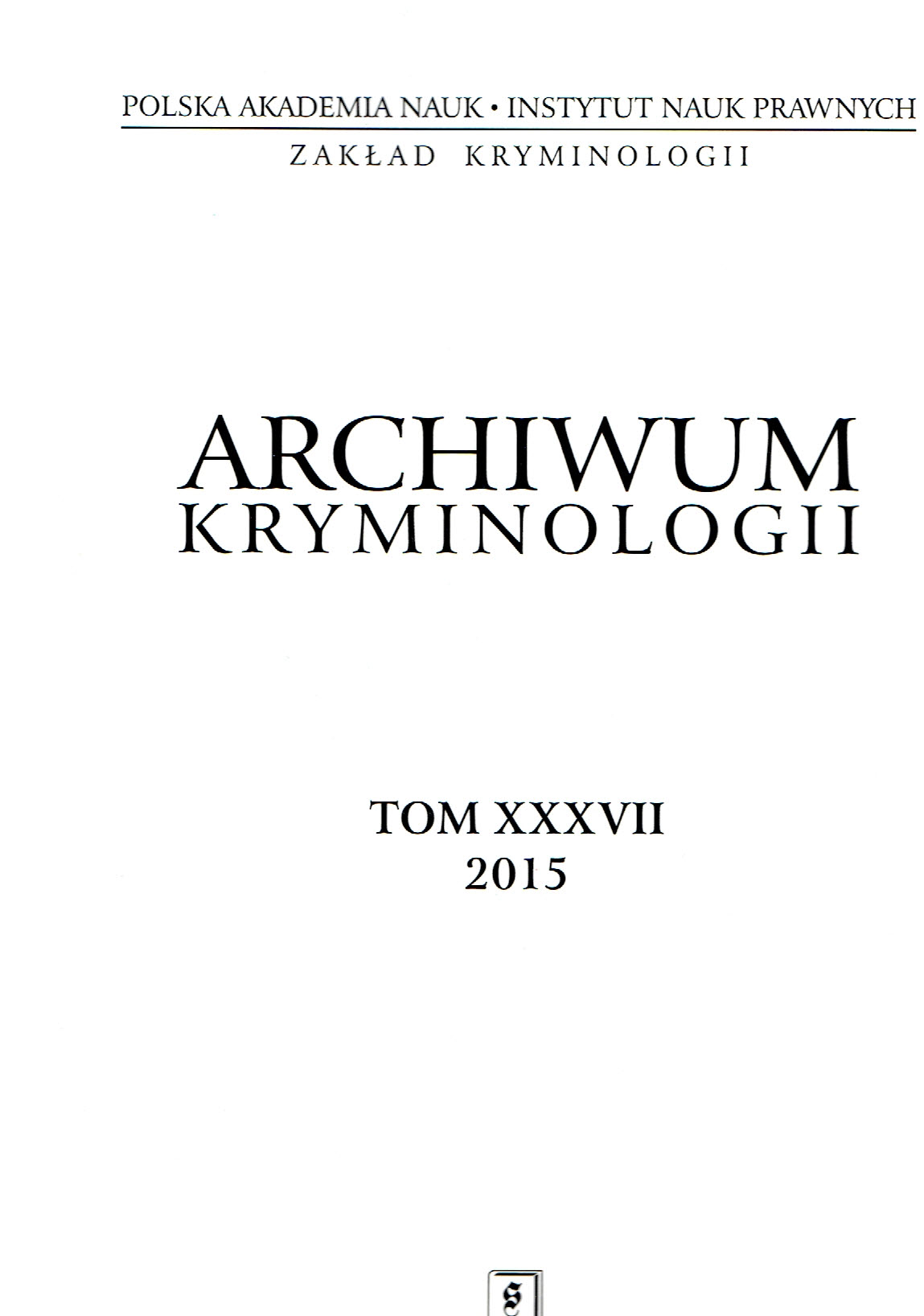DOŚWIADCZANIE AGRESJI PRZEZ POLICJANTÓW I WZORCE ICH REAKCJI EMOCJONALNYCH NA OKRUCIEŃSTWO
Experiencing Aggression among Policemen and Their Patterns of Emotional Reactions to Cruelty
Author(s): Lucyna KirwilSubject(s): Law, Constitution, Jurisprudence, Criminal Law
Published by: Instytut Nauk Prawnych PAN
Keywords: aggression; reactions to cruelty; Police
Summary/Abstract: The aim of the study was to establish whether police officers, i.e. individuals who experience a lot of aggression from other people, react emotionally to aggressive stimuli differently than students, i.e. individuals that would not have such an experience. The introduction presents a review of contemporary theories of aggression that explain the mechanisms of responses to aggressive stimuli and provocation to aggression. The main hypotheses to be studied were based on the theory of emotional desensitisation. According to this theory, those who have been more exposed in their life to aggression and have experienced aggression react less emotionally to aggressive stimuli, including scenes of cruelty. Thus the police officers should respond with weaker emotional responses to the observed cruelty than the students. Secondly, it was hypothesised that a richer experience with aggression in the past is related to a lower emotional arousal, feeling weaker negative emotions (anxiety, fear, sadness, disgust and anger), less negative evaluations of cruelty, and lower cruelty disapproval. The 134 police officers (aged 24-49 years) exposed to aggression and 125 students (aged 21-32 years) from medical studies and the humanities were examined individually. The questionnaires in use were: STAXI to measure anxiety-traits, BPAQ to measure aggression-traits, anger-traits and hostility, NOBAGGS to measure normative beliefs about aggression, an adapted questionnaire about serious physical aggression, the adapted proactive/reactive aggression scale, and the modified “scale of exposure to violence and violence use by police on the job” by Kowalczyk. The subjects’ reactivity level and emotional arousal in response to the viewed scenes of cruelty were measured by UFI 2071 (to measure skin conductance levels) and self-evaluations at the 7-point rating scales. The subjects marked the levels they felt positive and negative emotions (amusement, joy, relief, anxiety, fear, sadness, anger, and disgust) while watching scenes of cruelty and their evaluations of the observed cruelty (violent, unpleasant, liked, and justified) on a 7-point rating scale. Short excerpts from movies depicting acts of beatings, torture, or murder served as the scenes of cruelty (aggressive stimuli). The research showed that: (1) the policemen were generally less prone to aggression, but they had more experiences with it than the students; (2) the policemen’s emotional reactions to observed cruelty were weaker and less negative than the students’ ones (lower emotional arousal, weaker anxiety, fear, sadness and disgust); (3) the policemen and students did not vary on their evaluations of brutality and justification for cruelty in the observed scenes; their evaluations are negative; (4) a richer experience with aggression is related to a lower emotional response to cruelty (a lower emotional arousal, weaker emotions of anxiety and fear and fewer negative assessments of cruelty, i.e. its brutality and disapproval in both groups examined); (5) the aggression experienced by police officers at work is related to less emotional resistance to the scenes of cruelty: the policemen respond with stronger fear that victimises them and may contribute to the development of trauma; (6) a richer experience of coercive measures at work are related to a weaker emotional response to the observed cruelty (a lower emotional arousal, weaker negative emotions and less negative evaluations of the observed cruelty). The hypotheses formulated on the basis of the theory of desensitisation that the emotional responses of police officers to observed cruelty are dependent on previous experience with aggression, has been confirmed by the findings of the study. The police officer’s emotional reactions to cruelty are weaker as compared to the students’ responses. The results are discussed from the point of view of work demands and the importance of efficiency in police work. The factor lowering the policemen’s emotional resistance to cruelty is their experience of victimisation with aggression. The factor increasing their emotional resistance to cruelty is prior experience of the use of aggression, i.e. situations in which they had the opportunity to use coercive measures reasonably and without the negative influence of increased emotional arousal.
Journal: Archiwum Kryminologii
- Issue Year: 2015
- Issue No: XXXVII
- Page Range: 101-158
- Page Count: 58
- Language: Polish

